
Just as Vedanta accepts Brahman as the upadana or proximate cause of creation, Sarngadeva, the author of the 13th century treatise Sangitaratnakara, for the first time declared that nada Brahma was the upadana of music. Sangita has been accepted as the means of the four purusharthas and also as an end in itself. Tyagaraja, the great musician saint of the 18th century, sings, ‘Knowing the musical sound born from the muladhara – that is ecstatic liberation! To distinguish the proper home of the seven notes amidst the great tumult – listen, O mind, that is moksha! Devotion steeped in the nectar of melodious tones and modes, that is the final beatitude, O mind!’ (Svara raga sudharasa). His life was an illustration of how musical knowledge coupled with devotion enables one to experience the bliss of spirituality amidst the dissonance of the illusory world, culminating finally in moksha — the ultimate goal of life. Such has been the status accorded to music and the arts in India — as paths to divine realizations.
In India, we have both the margi and desi arts. Margi arts are the classical forms based on specific rules and structures laid down in the Natyasastra (200 BCE-200 CE) of Bharatamuni. Desi arts are regional creative expressions born of the unique tastes and preferences of people in different regions. These two arts are different from each other in tone and structure, use and effect, but never mutually hostile. In fact, a continuous give and take of values between Margi and desi has been the norm. As early as the 9th century the Brhaddesi of Matanga dealt with the music of the various regions of the Indian subcontinent.
This story is from the October 2019 edition of The Vedanta Kesari.
Start your 7-day Magzter GOLD free trial to access thousands of curated premium stories, and 8,500+ magazines and newspapers.
Already a subscriber ? Sign In
This story is from the October 2019 edition of The Vedanta Kesari.
Start your 7-day Magzter GOLD free trial to access thousands of curated premium stories, and 8,500+ magazines and newspapers.
Already a subscriber? Sign In

Panchakroshi Parikrama of Varanasi
At the snow-capped Kailas, the Divine Lord Shiva was seated with Mother Parvati.
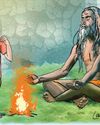
Gadai and the Monks
A fictional narrative based on incidents from the childhood of Sri Ramakrishna.

Chintayo momo maanosho Hori...
Sri Ramakrishna loved songs. There probably was no normal day when he did not sing some songs.
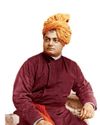
The Vedanta Vaccine
The world is still struggling under the impact of the pandemic due to Covid-19 for the last three years.
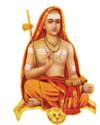
Chandrakirti's Chariot: Self in Madhyamaka Buddhism and Advaita Vedanta
The goal in Advaita Vedanta is the cessation of suffering and the attainment of true fulfillment. Suffering, according to this school, is due to ignorance of the true nature of the self and consequent erroneous identification with the body-mind.

Reminiscences of Sargachhi
Question: यद्यदाचरतत श्रेष्ठसतत्तदरेवरेतरो जनिः। ‘Whatever a superior person does, others do the same thing!’ (Gita 3:21) – What does this statement mean?
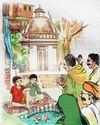
THE AUTUMN FESTIVAL
A fictional narrative based on incidents from the childhood of Sri Ramakrishna.
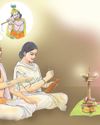
Bards of Guruvayur: Vilwamangalam II
Saints of India
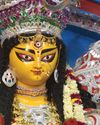
In the Universal Mother’s Divine Playground
Swami Vivekananda never taught the worship of Mother Kali. In a letter to Mary Hale he writes, “Kali worship is not a necessary step in any religion.
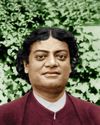
Swami Vivekananda: A Sportsman Par Excellence
In various books and articles, Swami Vivekananda has been called a spiritual leader, a prophet, a patriot, a social reformer, a philosopher, a yogi, a writer, an orator, an educationist, a musician, and so on.